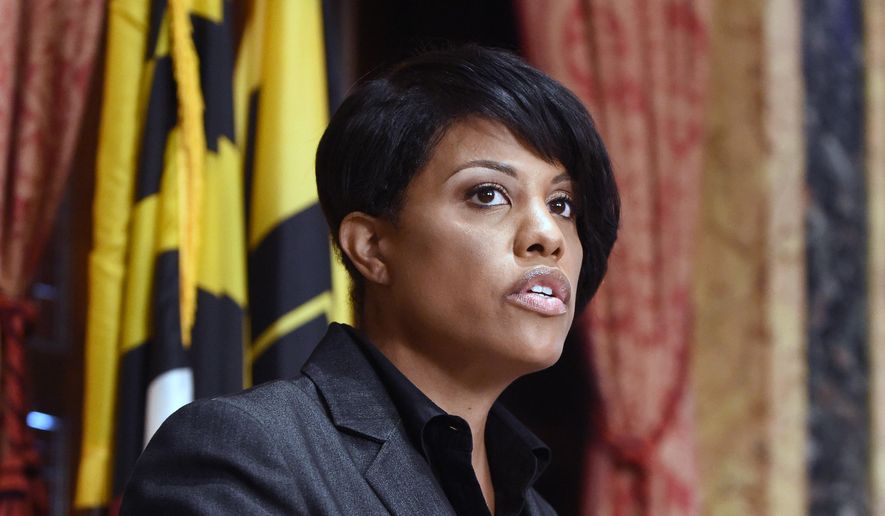ANNAPOLIS | State lawmakers are moving to improve protections for residents who believe they have been mistreated by the police, but critics said Tuesday the changes could end up shielding officers from scrutiny in misconduct cases.
At a time when police behavior is under scrutiny nationally, the critics told the General Assembly it needs to bring more oversight, not less, to rogue officers. They objected to changes that would give police chiefs and accused officers a chance to appoint their own representatives to disciplinary panels, thereby stacking the panels in favor of the officers.
“When you give the police not only the power to police themselves but veto power over the very police officers who are going to be in their accountability trials, that is one step forward and many steps back, and I can’t even say we can call that reform,” said Lawrence Grandpre of the advocacy nonprofit Leaders of a Beautiful Struggle.
The changes are based on recommendations from the Public Safety and Policing Workgroup, a panel created in May by Senate President Thomas V. Mike Miller and House Speaker Michael E. Busch after the police custody death of Freddie Gray in Baltimore.
The changes to the Law Enforcement Officer Bill of Rights would extend the time residents have to file a complaint against police from 90 days to a year, and would cut the time an officer has to hire a lawyer from 10 days to five.
Another bill would require at least one civilian be seated on the administrative review boards police use to recommend discipline.
“We need law and order. We need to support our police officers, and it’s our right to have that trust but verify,” said Delegate C.T. Wilson, Charles County Democrat. “But we can’t get away from the fact that we need our police officers because our communities suffer from crime — minority communities doubly so. So the bill we drafted, the recommendations, was just to give a little peace as far as the public is concerned, change the perception but also allow police officers to continue to do their job.”
Advocates from the American Civil Liberties Union, Progressive Maryland, CASA Maryland, Amnesty International, Freddie Gray Project and other groups protested the changes, wearing yellow “caution” police tape on their clothing.
Police chiefs and the Fraternal Order of Police also protested the bills, saying that problems between officers and the community cannot be solved by legislation.
“How do you legislate trust?” said Vince Canales, president of the Fraternal Order of Police.
Police argued that some agencies will be hard-pressed to pay for the new strictures, such as requiring officers to face periodic psychological evaluations at a cost of as much as $2,000 each.
Officers’ advocates also said review boards shouldn’t have civilians who don’t understand how the police operate, and objected to opening administrative hearings to the public, saying sensitive information could be leaked.
The fight left the bill sponsors frustrated.
“There are some advocates, it seems like they won’t be happy until police don’t have any power or authority, when you basically have to ask permission to arrest because they have such a distrust of police officers,” Mr. Wilson said of some critics. “Now again, I understand that distrust, and sometimes it’s well merited. But we have to have a working bill because we have to have a working police force.”
Delegate William G. Folden, Frederick County Republican and a former president of the Fraternal Order of Police, said it was “laughable” that both sides object to the same provisions.
As the hearing before the House Judiciary Committee wore on, he doubted the sides could be reconciled.
“It’s a giant cluster,” Mr. Folden said.
Baltimore Mayor Stephanie Rawlings-Blake appeared at the hearing to ask the legislature to grant police commissioners the authority to suspend without pay an officer charged with an offense that would result in a prison sentence of a year or more. She also asked the legislature to give police chiefs and commissioners more time to review disciplinary recommendations from trial boards.
“I do believe this is important. I heard very clearly from my constituents that they feel officers are playing by a different set of rules when they are charged with a very serious crime,” Ms. Rawlings-Blake said.
• Anjali Shastry can be reached at ashastry@washingtontimes.com.




Please read our comment policy before commenting.